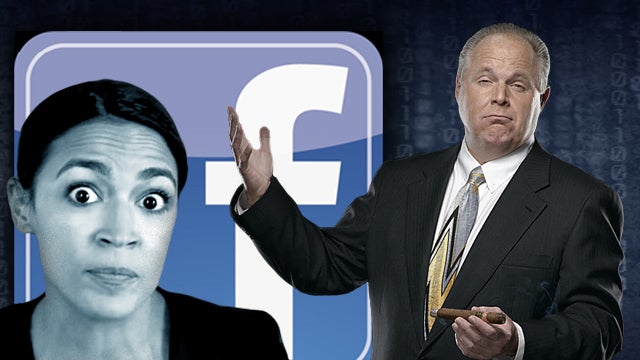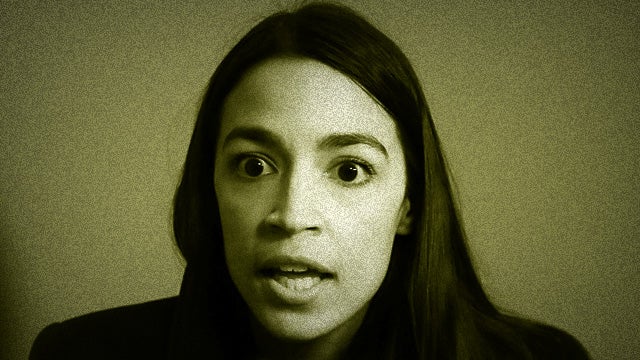RUSH: And AOC comes out against social media.
BREAK TRANSCRIPT
RUSH: People fascinate me. I said in the closing seconds of the previous hour AOC has quit social media. I am bombarded. “No, she didn’t, no, she didn’t, she just quit Facebook, she just quit Facebook. You’re wrong!” I know she just quit Facebook. I know she loves Twitter.
BREAK TRANSCRIPT
RUSH: Alexandria Ocasio-Cortez. Now, the reason I want to play this for you is because this is something that I happen to agree with her about, in part. For those of you who have been here a long time, you know that I have expressed some concerns about social media, what it does to individuals, that it presents a false opportunity for fame, creates a desire for fame.
 In the process, it, I think, creates all kinds of feelings of insecurity and inferiority that then makes people lie about themselves. And they can do all of this anonymously. I think you go on social media, and you read a bunch of people talking about how exciting their lives are and all of this and people reading this think, “My life’s not that exciting.”
In the process, it, I think, creates all kinds of feelings of insecurity and inferiority that then makes people lie about themselves. And they can do all of this anonymously. I think you go on social media, and you read a bunch of people talking about how exciting their lives are and all of this and people reading this think, “My life’s not that exciting.”
So you start lying about how exciting your life is or it makes you really wish your life was more exciting than it is, when there’s nothing wrong with your life, but it reinforces that something is, that you’re missing out on something. And I think it has the potential to create psychological disorders that we’re not even contemplating. I think it’s been one of the big problems of social media. It’s all rooted in the anonymity of it.
I’m not so much worried about people losing human contact or spending all the screen time. Those concerns I think are actually overblown. But the psychological effect of this, not to mention that these social media sites are run by a bunch of activist leftists and are thus actively biased against over half of the country, it’s just more obstacles for people to get past.
Well, Alexandria Ocasio-Cortez was on a podcast over the weekend called Skullduggery. And I think Michael Isikoff is part of this operation. It was his podcast, and there’s a cohost named Daniel Klaidman. And it’s Klaidman asking this question of Cortez. “Have you thought about, at least for some periods of time, giving up social media to make a statement?”
CORTEZ: I personally gave up Facebook, which was kind of a big deal because I started my campaign on Facebook, but I actually think that social media poses a public health risk to everybody regardless — I mean, there are amplified impacts for young people, particularly children under the age of 3 with screen time, but I think it has a lot of effects on older people. I think it has effects on everybody, increased isolation, depression, anxiety, addiction, escapism. So I think that it poses these issues to everyone. I do think about that, both as a person with a larger audience, but also as just an individual user of these platforms.
 RUSH: Right. “So increased isolation, depression, anxiety, addiction, escapism. So I think it poses issues.” But she’s not quitting Twitter. Just Facebook. See, Millennials don’t like Facebook. I don’t know why, but they don’t. They’re all trying to navigate, get everybody to Twitter here. But in one sense she’s not totally wrong about the effects of this, the potential effects of this stuff on people. It’s been easily foreseen since we first saw how people were using it.
RUSH: Right. “So increased isolation, depression, anxiety, addiction, escapism. So I think it poses issues.” But she’s not quitting Twitter. Just Facebook. See, Millennials don’t like Facebook. I don’t know why, but they don’t. They’re all trying to navigate, get everybody to Twitter here. But in one sense she’s not totally wrong about the effects of this, the potential effects of this stuff on people. It’s been easily foreseen since we first saw how people were using it.


